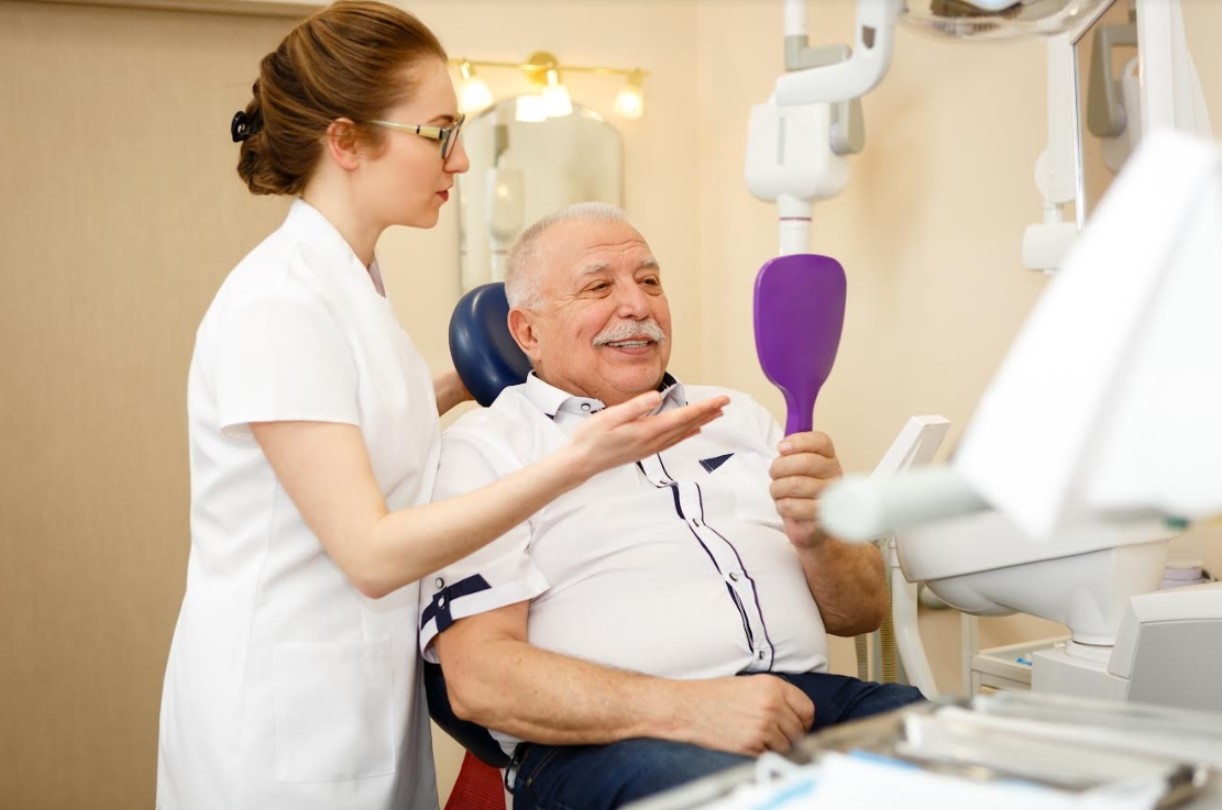DC Pilot Plan for Dental Health: El Tiempo Latino

El Tiempo Latino – In the United States, some 76.5 million lack dental insurance and among immigrants, especially the elderly, there is an oral health crisis.
Oral health is not a priority of the health system. In an attempt to make up for some of those shortcomings, California-based Delta Dental Community Care Foundation just launched a pilot plan in DC. It's doing it together with Mary’s Center and Howard University School of Dentistry. The goal? To offer care and education to economically vulnerable senior citizens, including immigrants.
“There is an undeniable connection between bodily and oral health. The disparities in this area are abysmal. Even older adults with Medicare don't always have dental coverage, and any costs related to their teeth are paid out of pocket,” according to Laura Blinkhorn, a family physician and geriatrician at Mary's Center. The consequences? Millions of people with minimum incomes see their quality of life diminished because of damaged teeth, problems with chewing, and feeling embarrassed to smile and speak.
Dental problems have been exacerbated during the pandemic, as many clinics have closed care. In 2020, some 13 million who had some form of insurance chose to defer oral care, according to the Care Quest Institute. Among the undocumented, the problem is more serious since they typically have more of their teeth removed because they arrive at the dentist too late.
Pilot plan
"After decades of experience in dental health care, we know that unmet need represents a national health crisis among those 65 and older," said Kenzie Ferguson, vice president of the Foundation and corporate social responsibility for Delta Dental of California. “That is why through this alliance in DC, the goal is to focus attention on the poor, African Americans, Latinos, immigrants and those who have mobility problems.”
Delta Dental will award up to $5 million over five years. The metro area was chosen because of the economic disparities that affect these vulnerable populations and also because there are well-established community health systems here such as Mary's Center and Howard University School of Dentistry.
For Blinkhorn, support from Delta Dental will make it easier to work on prevention and awareness of the importance of oral health. "For those who do not have insurance or are undocumented, at Mary's Center we offer a diagnosis and we have preventive, cleaning, X-ray and evaluation services at very reasonable prices," she assured.
“DC is our first pilot in the program and we will expand to other areas where dental care is marginalized,” said Ferguson, who hopes, at the end of this experiment, to see better results not only with healthier teeth but also a more educated population and awareness of dental health, “because neglecting it brings about a domino effect that leads to other serious problems. We must not forget that our general well-being begins in our mouths.”
Cheaper care
Carlos Barahona is an elderly patient who three months ago had a toothache. Scared by how expensive it is to go to the dentist and due to lack of information, he began to ask where to go for help, until a friend recommended him to go to Mary's Center.
“The dentist checked me out, took an X-ray and sent me medicine to reduce the pain until my next appointment,” said Carlos. “At the next appointment, the dentist will do a cleaning, see if I have an infection and if I need a deeper treatment or if I just need a filler." This patient, a native of Guatemala, during the pandemic did not go to the dentist. "Fortunately at that time I did not suffer any toothache," he recounted.
The problem with older people is that they take medicines for other diseases and these, in many cases, aggravate dental ailments. For example, many medications dry out the mouth, causing cavities, swollen gums, and even tooth loss. In extreme cases, such as smokers, uncontrolled oral health prevents early detection of oral cancer. "Regular visits to the dentist, in addition to monitoring the teeth, serve to monitor symptoms and signs of possible malignant tumors of the head and neck," said Blinkhorn.
When patients require a more complex dental procedure, Mary's Center transfers them to Howard University Hospital. With this pilot plan, it is also expected to increase coordination so that visits to the doctor and dentist are made on the same day. “Dentist appointments are not free, but they are significantly discounted,” Blinkhorn insisted.
Since 2011, Delta Dental has granted more than $100 million to increase access, quality of care, education and the scientific advancement of dental health in the 15 states and District of Columbia its enterprise serves.
The dentist advises
Do not smoke. Regardless of your age, do not smoke and if you already do, try to quit, because it is the cause of many diseases for your mouth, throat, lungs and the rest of your body.
No to sweets. Say no to excessive consumption of sweets, flour and noodles, as these are the main causes of cavities and other periodontal diseases, not to mention diabetes, a disease that also tends to deteriorate teeth.
Good brushing. Brush your teeth and tongue at least twice a day, complete with flossing. Insist to your parents and grandparents that they do the same. Every six months go to the dentist for a dental cleaning. If you have diabetes, visits to the dentist should be more frequent.
Make an appointment. If you feel that your mouth is dry, go to the doctor as soon as possible to determine what problem you have and solve it before it's too late. For more information and to make dental appointments at Mary's Center call 844-796-2797 or 202-483-8196.
Read the original Spanish-language version in El Tiempo Latino